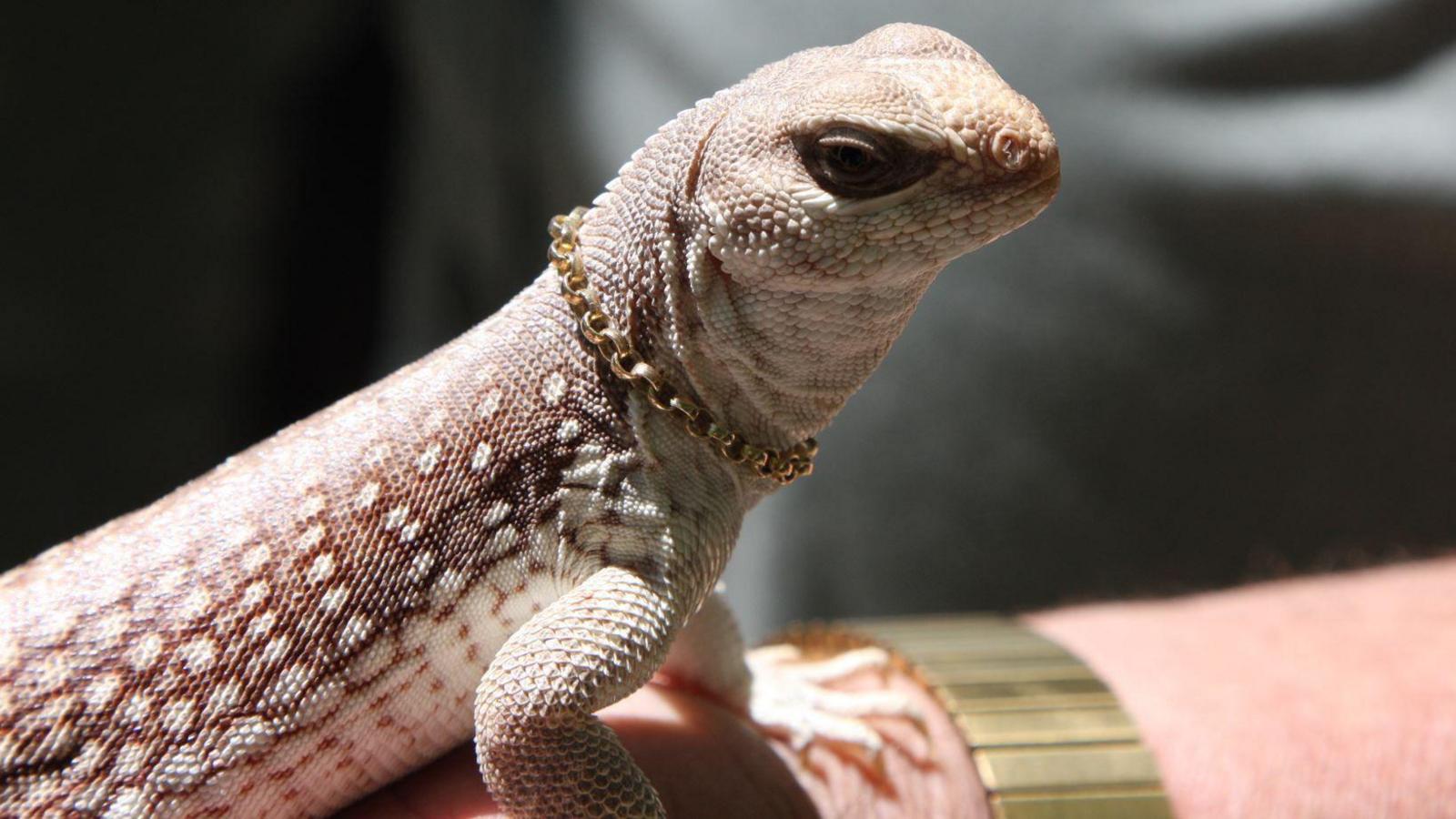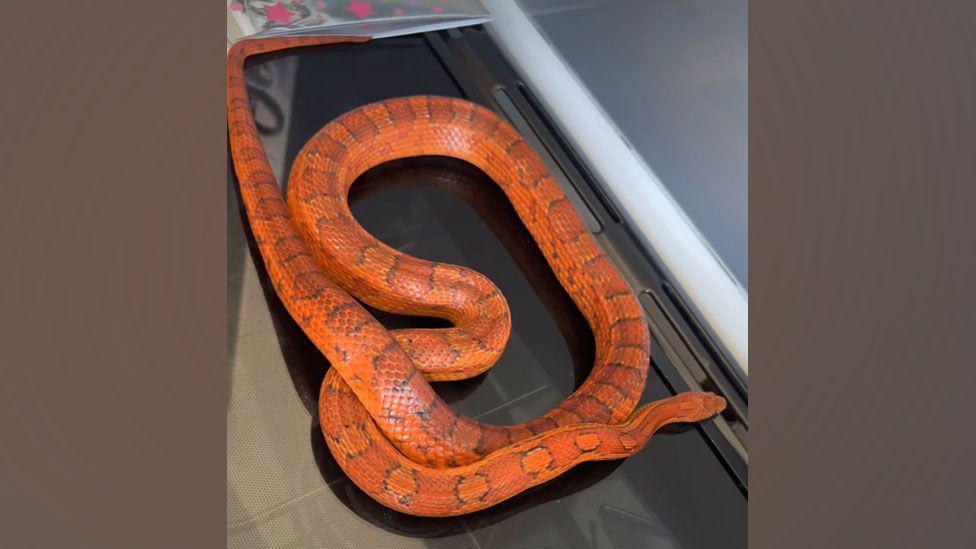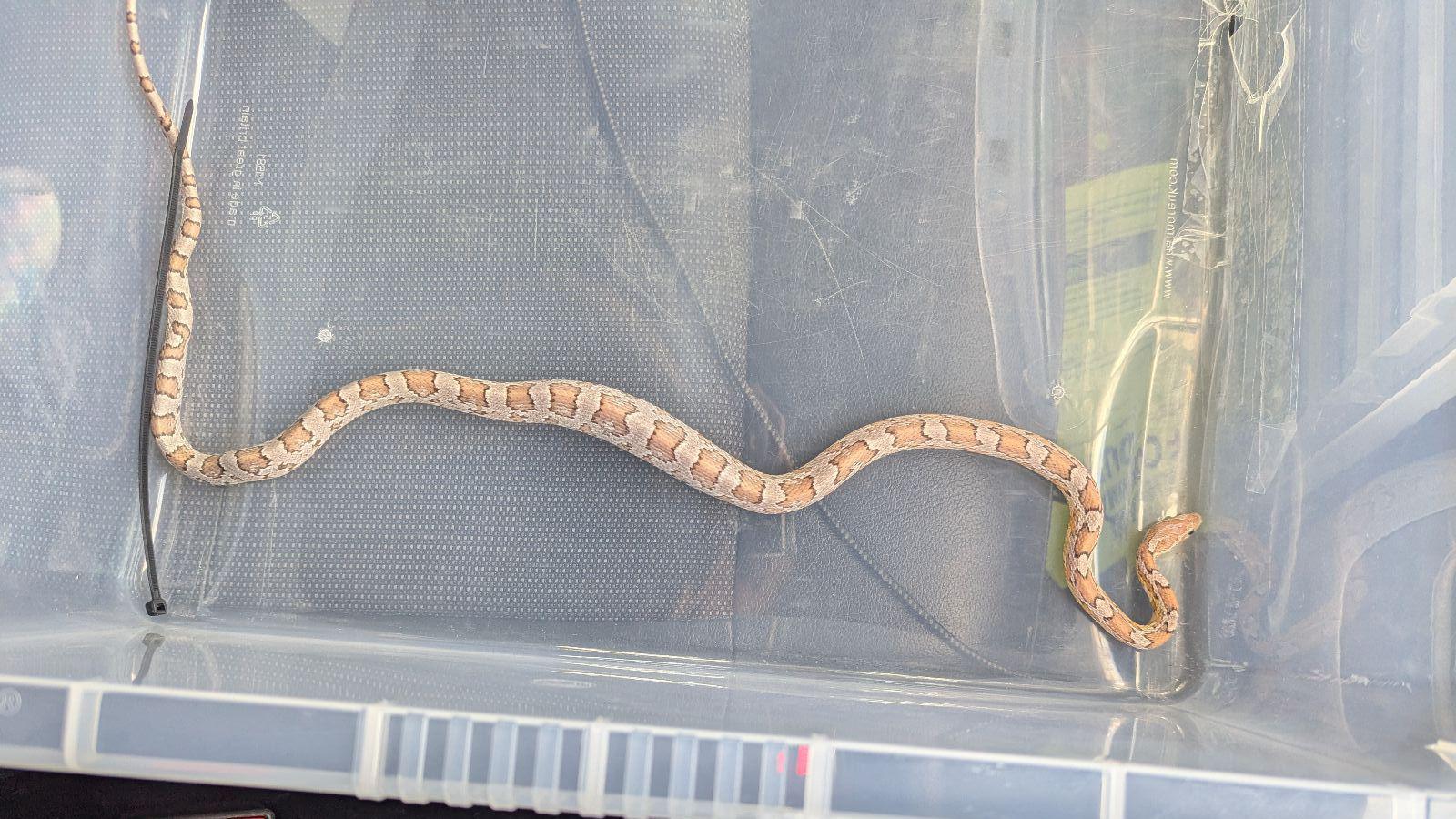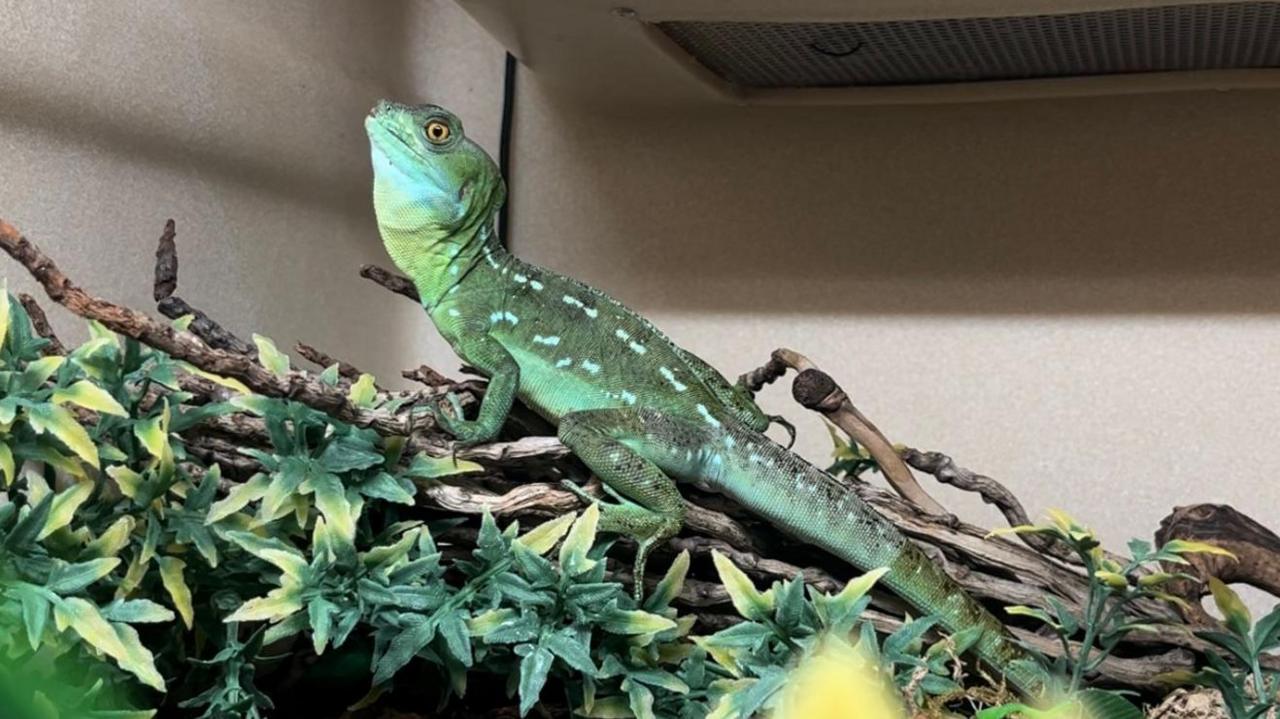Media language 'can stigmatise reptile pets'

- Published
Pet reptiles and amphibians face more risks to their welfare than other dometic pets due to how they are referred to by the UK media, university researchers in Liverpool have found.
The language used to refer to such animals is less human-like than language used to describe furry animals such as cats and dogs, zoologists at Liverpool John Moores University said.
Researchers warned it was resulting in harmful biases against certain types of pets, with reptiles and amphibians frequently demonised.
"The language used is really different, there's a lot of fear, a lot more disgust," Dr John Bielby said.
Dr Bielby's team has been looking at media coverage of abandoned pets from different species groups.
He said when reptile and amphibian pets were reported lost there was a difference in how newspapers and social media covered the story compared to "furry pets".
'Lack of empathy'
"We looked at newspaper articles over the last 20 years and the structure and the language used," he told BBC Radio Merseyside.
"What we found is that snakes or lizards get really different treatment than cats, dogs and small furry animals like rabbits and guinea pigs."
He said reptiles and amphibians were often described as being "on the loose" rather than "lost" and much more emotive and sentimental language was used when dogs or cats went missing.
"If you're reading about a dog that's been abandoned or taken to a rescue centre it will be very much about 'poor Poppy' or 'poor Milo'," he said.
"Media narratives often make reptiles and others appear as strange, even dangerous creatures."
He said pet reptiles and amphibians are often talked about as objects and not animals that can feel emotions and pain, which can affect how people act towards them.
"These perceptions can lead to changes in behaviour or how likely we are to sympathise or empathise with these animals," he said.
"I think a major point of our study is that these feelings can be reinforced by media coverage and narratives which favour certain relationships, cuddly or whatever, with animals rather than respecting each animal for its unique nature."
He said hoped his research would help change attitudes and make people think about the language they use.
Get in touch
Tell us which stories we should cover on Merseyside
Listen to the best of BBC Radio Merseyside on Sounds and follow BBC Merseyside on Facebook, external, X, external, and Instagram, external. You can also send story ideas via Whatsapp to 0808 100 2230.
Related topics
- Published19 August

- Published15 July

- Published22 October 2024
